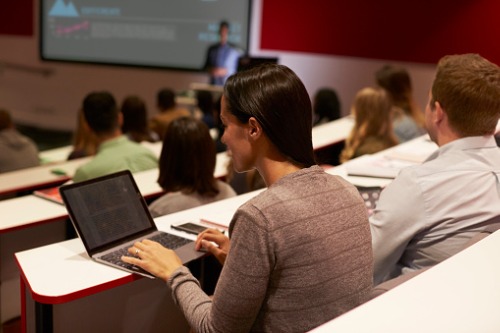
Governments, schools and the private sector have been preparing primary and secondary students for the jobs of the future via a number of targeted routes, including curriculum changes and using technology to improve teaching.
But the future of work doesn’t just mean new roles in the workplace and automation – it also means that traditional jobs are being affected by technological advancements.
To meet this challenge, tertiary-level education providers are incorporating the use of technology in their course offerings to ensure they remain competitive amid these changes.
Training tech-savvy lawyers
Flinders University, for its part, announced it will take into consideration how emerging technologies also affect legal practice.
The University this week announced that it will have a new curriculum that includes courses which integrate technology in legal practice in order to keep their law graduates ahead of the game.
“Legal studies are founded on principles casting back hundreds of years and Australia is very practiced at producing exceptional lawyers, but increasingly we need to augment that fundamental grasp of jurisprudence with skills that enable justice to be effectively delivered in contemporary society,” Associate Professor Tania Leiman, Dean of Law at Flinders University, said.
“These bold new offerings mean that a Flinders Law degree will give students the skills and knowledge required to adapt and thrive in a changing legal landscape.”
Some of the courses being made available from March 2020 include “Law in a Digital Age”, which seeks to equip students with the necessary digital skills their clients, and “Technology Law”, which will help law students navigate the regulation of various technologies.
“Students will additionally have the opportunity to embrace legal innovation for social good as part of their course options,” Associate Professor Leiman said.
Improved health training
Charles Darwin University is leveraging the power of Virtual Reality (VR) and Augmented Reality (AR) to shake up how its budding health professionals are trained.
Going beyond the traditional textbooks and audio-visual materials, the University’s College of Health and Human Sciences recently announced it will use these hi-tech tools through its Health Immersive Virtual Education (HIVE) project.
The College has already tested the use of technology in its anatomy and physiology units, as well as a tool for an immersive counselling session.
“Students can go into the room where there’s a couple fighting and a domestic violence issue that’s about to erupt and safely experience what it feels like to be in that room, and how best to deal with the situation,” College Manager Gus Diaz said.
The College is currently working on other technological tools which can be used for creative therapies, social work, sports science, as well as medical laboratory science. The University is aiming to eventually have its HIVE project fully integrated in all courses in the College.
Upgraded creative spaces
The University of Sunshine Coast, meanwhile, has begun the construction of a $5.5m state-of-the-art facility which will supplement the formation of its Creative Industries students, as well as serve as a venue for collaborations among various artistic disciplines.
The facility, which is expected to be finished by March 2020, will also house the state’s first ever MIT Fab Lab Marker Space as well as professional-quality recording and video studios.
There will also be a black box theatre production space within the building.


